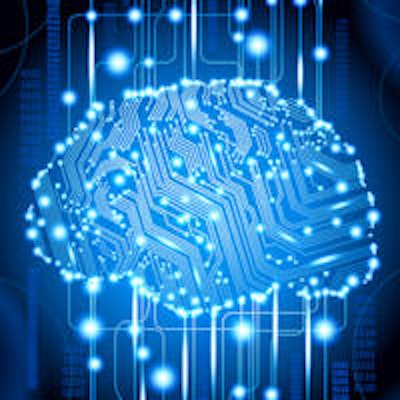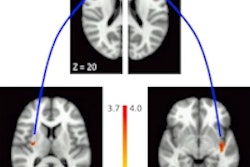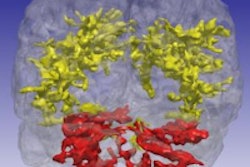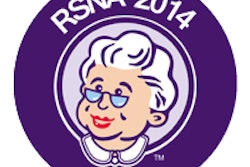
It may sound like something out of the technothriller "Minority Report," but could medical imaging modalities such as functional MRI (fMRI) someday be used to predict future behavior, such as someone's propensity to commit a crime or succeed in school? Maybe, but discoveries so far have fallen short of realizing imaging's potential in this regard, according to an article published January 7 in Neuron.
In a review of past research and outcomes, a team led by John Gabrieli, PhD, from the Massachusetts Institute of Technology acknowledged that brain imaging can help predict a person's capacity to learn or respond to drug treatment, as well as the potential for criminal activity and other health-related behavior.
Such brain measures, or neuromarkers, might eventually "offer opportunities to personalize educational and clinical practices that lead to better outcomes for people," Gabrieli and colleagues wrote (Neuron, January 7, 2015, Vol. 85:1, pp. 11-26).
Unfortunately, personal failures such as events in school or in the mental health setting typically prompt action after the harm has occurred -- but it doesn't have to be that way.
"If we can use neuroimaging to identify individuals at high risk for future failure, we may be able to help those individuals avoid such failure altogether," Gabrieli said in a statement.
Educational outcomes
One future goal for the use of neuromarkers is to perform individualized predictions of educational outcomes, the authors noted.
"Most studies to date have related variation in baseline brain measures to variation in subsequent outcomes," they wrote.
For example, behavioral measures in children have been used to gauge future success or failure in language and reading, years before explicit reading instruction. The authors cited a 2011 study of children with dyslexia, which assessed how well the subjects adjusted for their reading difficulty by closing the gap between their actual age and their expected reading skills (Proceedings of the National Academy of Sciences, January 2011, Vol. 108:1, pp. 361-366).
The study subjects were given 17 tests of reading and related skills. The researchers used fMRI to image brain activity during a word-rhyming task and diffusion-tensor MRI to view white-matter organization. They were able to predict which children would compensate and which would continue to have difficulty reading over the next 2.5 years.
More specifically, MR images showed that the right prefrontal brain region was critical for reading improvement in patients with dyslexia, as well as how the region differed in children with typical reading development.
Health-related behavior
Gabrieli and colleagues also reviewed how neuromarkers could help predict future health-related behavior, as such as alcohol abuse, drug abuse, and unhealthy eating.
One 2013 study looked at adolescents between the ages of 16 and 19 who had a history of substance use disorders. fMRI found that subjects with less prefrontal and greater parietal activation on the same task had higher levels of substance use over the following 18 months (Addictive Behaviors, January 2013, Vol. 38:1, pp. 1435-1441).
The findings can be used to help identify those susceptible to drug and alcohol abuse, as well as to develop interventions for young individuals at risk, the authors of the 2013 study concluded.
Gabrieli and colleagues wrote that one of the challenges in using cognitive neuroscience measures to improve the future welfare of individuals is the need to further validate the results of previous studies, which generally have included small cohorts of subjects.
"Although such pioneering studies must often begin with modest resources because it is their outcomes that justify larger studies, the translation of such science to practical application now requires larger studies that can support more rigorous statistics," they wrote.
Perhaps the most intriguing point raised by the authors is how information garnered from neuromarkers and the resulting care and treatment decisions may affect society.
"If neuromarkers become more useful, they will provoke questions about how to most ethically use predictive information to help people rather than simply select people most likely to succeed," they wrote.



















